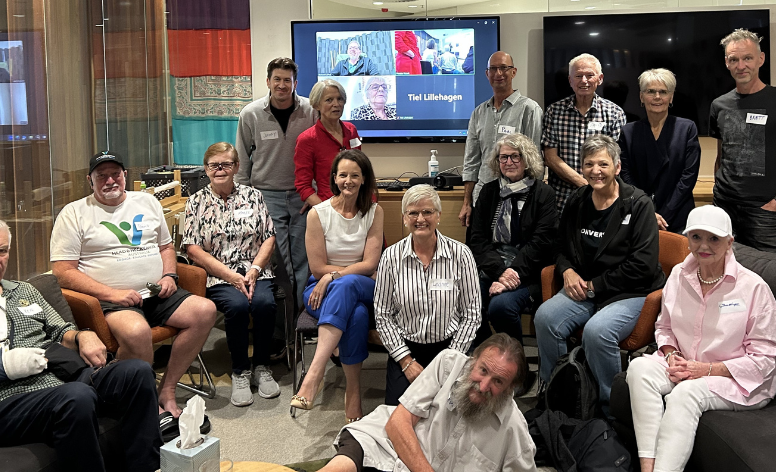Let’s talk about Head and Neck Cancer
28 July 2025
As social creatures our lives centre around connecting with friends and family over a meal, a coffee or a drink at the pub, but for many head and neck cancer patients this once enjoyable part of life now has some challenges.
Every year around 5,100 Australians are diagnosed with a head or neck cancer but 17,000 are living with the side effects of their treatment, which is considered one of the hardest on a patient’s quality of life.
Dr Tsien Fua, Head and Neck Radiation Oncologist Specialist at Peter Mac, said one of his greatest challenges is to cure people while still maintaining a quality of life.
“With head and neck cancer we often have to treat a broad area with radiation which would include the mouth and neck,” he said.
“This treatment carries a lot of side effects into survivorship such as difficulty swallowing, hearing loss, dental issues, as well as the visual impact for some with stroke-like effects or even the removal of their nose, or tongue depending on their type of cancer.
“Treatment and recovery are a real team effort involving medical oncologist (chemotherapy), surgeons and radiation, but we also have a really strong allied health service team to focus on rehabilitation and minimising the impact of side effects.”
Dr Fua said that while there are no new radiotherapy treatments in Australia for head and neck cancer, he is excited by the results of new immunotherapy treatments that may reduce the need for radiation in the future.
Peter Mac patient Tiel Lillehagen is a head and neck cancer survivor who along with fellow survivor Lora Winter wanted to help other patients navigate their new reality post-treatment through a patient support club.

“Lora and I have been running patient support groups for head and neck patients, carers and loved ones since 2020,” said Tiel.
“The meetings are held in the Wellbeing Centre at Peter Mac and we have guest speakers from allied health such as physiotherapists, speech pathologists, dentists and dieticians, as well as the clinical team, to discuss how treatment might impact them and what they can do to help improve their quality of life.
“Returning to ‘normal’ life post treatment is hard and often survivors avoid social situations because of the challenges, so we really wanted to help share some tips and tricks on managing those long-term side effects.
“In addition to the patient support program, Peter Mac has implemented a peer support program for newly diagnosed patients to partner with someone who has been through a similar treatment.
“There is so much information to take on board when you are first diagnosed and it can feel lonely. This program allows us to share knowledge, provide people with a connection so they know they are not alone and a safe space to express thoughts and feelings,” he said.
Please visit our website for more information on Head and Neck Cancer.
